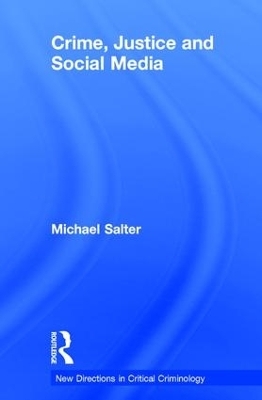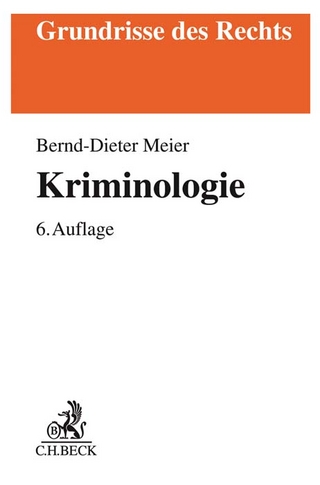
Crime, Justice and Social Media
Seiten
2016
Routledge (Verlag)
978-1-138-91966-2 (ISBN)
Routledge (Verlag)
978-1-138-91966-2 (ISBN)
Drawing on original qualitative research, this book lays out an innovative theoretical paradigm of online crime and justice that integrates critical theories of gender, technology and public space.
How is social media changing contemporary understandings of crime and injustice, and what contribution can it make to justice-seeking? Abuse on social media often involves betrayals of trust and invasions of privacy that range from the public circulation of intimate photographs to mass campaigns of public abuse and harassment using platforms such as Facebook, Twitter, 8chan and Reddit – forms of abuse that disproportionately target women and children.
Crime, Justice and Social Media argues that online abuse is not discontinuous with established patterns of inequality but rather intersects with and amplifies them. Embedded within social media platforms are inducements to abuse and harass other users who are rarely provided with the tools to protect themselves or interrupt the abuse of others. There is a relationship between the values that shape the technological design and administration of social media, and those that inform the use of abuse and harassment to exclude and marginalise diverse participants in public life.
Drawing on original qualitative research, this book is essential reading for students and scholars in the fields of cyber-crime, media and crime, cultural criminology, and gender and crime.
How is social media changing contemporary understandings of crime and injustice, and what contribution can it make to justice-seeking? Abuse on social media often involves betrayals of trust and invasions of privacy that range from the public circulation of intimate photographs to mass campaigns of public abuse and harassment using platforms such as Facebook, Twitter, 8chan and Reddit – forms of abuse that disproportionately target women and children.
Crime, Justice and Social Media argues that online abuse is not discontinuous with established patterns of inequality but rather intersects with and amplifies them. Embedded within social media platforms are inducements to abuse and harass other users who are rarely provided with the tools to protect themselves or interrupt the abuse of others. There is a relationship between the values that shape the technological design and administration of social media, and those that inform the use of abuse and harassment to exclude and marginalise diverse participants in public life.
Drawing on original qualitative research, this book is essential reading for students and scholars in the fields of cyber-crime, media and crime, cultural criminology, and gender and crime.
Michael Salter is Senior Lecturer in Criminology in the School of Social Sciences and Psychology at Western Sydney University, Australia.
Introduction
1. Towards a critical theory of online abuse
2. Gamergate and the subpolitics of abuse in online publics
3. Abusive idols: Commodification and exploitation on social media
4. Nudes, attention whores and gym selfies: Sexuality and nudity in the online visual economy
5. Dick pics and sexting: Weaponising gendered power on social media
6. From #OpGabon to #OpDeathEaters: Transnational justice flows on social media
Conclusion
| Erscheint lt. Verlag | 14.10.2016 |
|---|---|
| Reihe/Serie | New Directions in Critical Criminology |
| Zusatzinfo | 14 Halftones, black and white; 14 Illustrations, black and white |
| Verlagsort | London |
| Sprache | englisch |
| Maße | 129 x 198 mm |
| Gewicht | 294 g |
| Themenwelt | Mathematik / Informatik ► Informatik |
| Recht / Steuern ► Strafrecht ► Kriminologie | |
| Sozialwissenschaften ► Kommunikation / Medien ► Medienwissenschaft | |
| Sozialwissenschaften ► Soziologie ► Allgemeine Soziologie | |
| ISBN-10 | 1-138-91966-7 / 1138919667 |
| ISBN-13 | 978-1-138-91966-2 / 9781138919662 |
| Zustand | Neuware |
| Haben Sie eine Frage zum Produkt? |
Mehr entdecken
aus dem Bereich
aus dem Bereich


